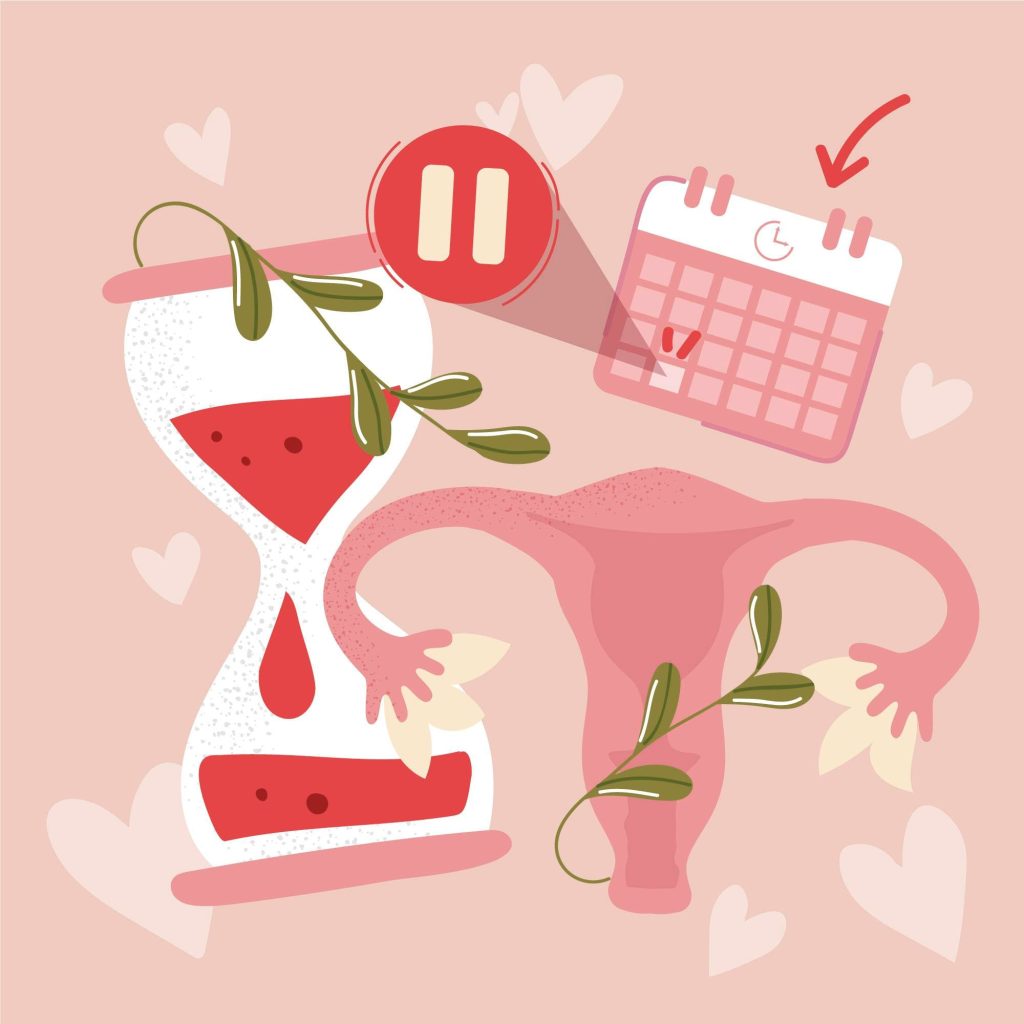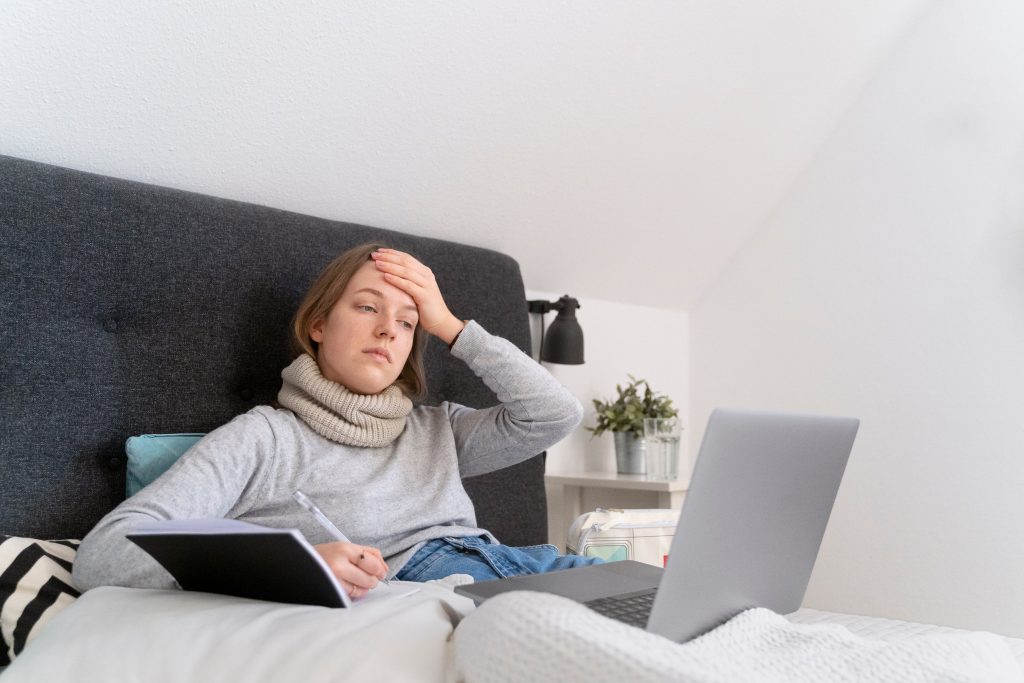The first day of your period marks the beginning of your menstrual cycle, which prepares your body for pregnancy. The average menstrual cycle lasts 28 days, but it can be shorter or longer. About 2 weeks before the menstrual period, hormonal changes in the body cause a series of premenstrual symptoms (PMS). Changes in the body during periods can cause muscle cramps, chest pain, fatigue, mood swings and stomach upset. However, individual symptoms may vary as the cycle and The amount of menstrual bleeding Every woman is unique.
Other body changes during the menstrual cycle are less obvious, but hormonal changes throughout the month may affect your mood and energy levels. The menstrual cycle is controlled by several hormones, including estrogen and progesterone, which are produced by ovarian follicles.
Phases of the menstrual cycle
The menstrual cycle or period has 4 stages:
- Menstrual phase
- Follicular phase
- Ovulation phase
- Luteal phase
The symptoms of body changes in the period are revealed in the menstrual phase. At this stage, the level of progesterone and estrogen at the beginning of your period is low and causes the endometrial tissue to shed through the vagina.
What happens to the body during the period?
Period symptoms may be uncomfortable for some people, but others may not notice any changes during their period other than bleeding. Some of these symptoms that we mentioned above and we will explain more about the most common symptoms in the following, include the following:
Abdominal cramps and bloating
Hormonal fluctuations, especially the decrease in progesterone levels and the increase in prostaglandins during menstruation, cause uterine and intestinal muscles to contract. These contractions can lead to pain and bloating. Hormonal changes also cause water retention in the body, which in turn causes bloating and a heavy feeling in the abdomen. Also, some women are sensitive to certain foods during menstruation, which can cause bloating and other digestive problems. Sometimes it is possible to Home remedies for flatulence He also got help during this period.
Mood swings during periods
Mood swings are one of the most common premenstrual symptoms (PMS) that many women experience. These fluctuations can range from feeling tired and irritable to severe depression and anxiety. In addition to estrogen and progesterone, changes in the level of other hormones such as prolactin and some underlying diseases such as thyroid disorders, anemia and allergies can also affect mood during this period.
Read more:
Cause of heartache after period What is it and how is it treated?
Effect on bowel movements
Changes in the stool pattern during this period may be due to the hormone progesterone. Progesterone changes during the menstrual cycle can slow down bowel movements and cause constipation or, conversely, increase bowel movements and cause diarrhea, or a combination of both.
Research has shown that people with digestive disorders such as irritable bowel syndrome (IBS) have more frequent bowel movements during their periods and are at increased risk for loose stools, diarrhea, bloating, and abdominal pain.

Increase sports performance
Your period may increase your athletic performance. Fluctuations in estrogen and progesterone change the fluid balance in the kidneys and blood. You can use these fluctuations and increase your activity during the menstrual period and prevent your boredom and mental fatigue. However, being on your period can make it difficult to go to the gym, but if you’re motivated enough, you’ll help reduce blood clots and reduce muscle contractions.
Read more:
The reason is twice period Becoming in one month from the most common to the most dangerous!
Increased risk of infection
Your vaginal pH changes before your period and when your period starts, and it may make some people prone to yeast or bacterial overgrowth in the vaginal area during this time. Overgrowth of microorganisms can lead to bacterial or fungal infections.
Note that factors other than pH can also increase the risk of infection. These factors include:
- Improper eating habits
- No long-term replacement of sanitary pads or tampons
- Using perfumed detergents or feminine soaps
- Use spray or wet wipes
Chronic headaches and migraines
In a review article published in 2021, several studies were reviewed to better understand the role of estrogen in migraine. The researchers concluded that the decrease in estrogen by creating Migraines and migraine headaches It is related.
Feeling of imbalance and dizziness
When you get your period, you’re likely to feel off balance and dizzy, and possible causes include:
- Hormonal imbalance
- Increased fatigue
Water retention and swelling, which causes an imbalance of the body’s center of gravity and can also make the area around your eyes slightly swollen.
Read more:
the reason period What is it and how is it treated?
Other body symptoms during period
Some other symptoms of body changes during periods may include the following:
- tiredness
- Food cravings
- back pain
- Painful breasts
- Itchy skin of the body or head
- swelling
- Trembling and weakness or dizziness
- Changes in body temperature
- drop in blood pressure
- Low blood sugar

Source Link
